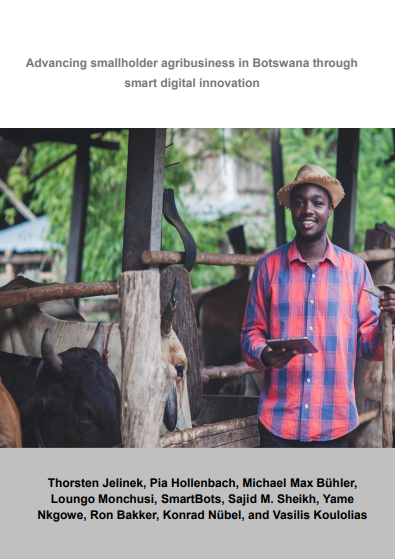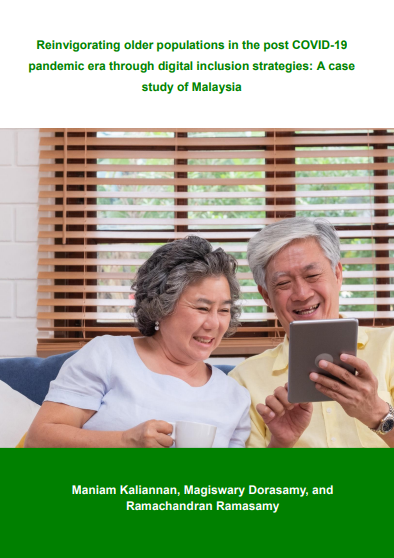Research reports
The COVID-19 pandemic changed the way we live our lives where the focus shifted from the physical and face-to-face mode to an online mode. Consequently, information and communication technology (ICT) has been a vital part of countries’ response; however, the pandemic accentuated the digital divide that exists.
The Connect2Recover research competition was launched to encourage research that provide empirically sound and targeted insights to foster digital inclusion during the global COVID-19 recovery. The resulting 15 research reports show that action needs to be taken to increase digital connectivity and resilience as well as to address the digital divide and enhance digital inclusion. By addressing these issues, it would also address the United Nations Sustainable Development Goals (SDG), such as SDG 1: end poverty, SDG 3: good health and well-being, SDG 4: quality education, SDG 8: decent work and economic growth, SDG 9: industry innovation and infrastructure, and SDG 10: reduced inequalities.
The Connect2Recover research competition and 15 research reports are introduced in this video. Watch video here:
The 15 research reports are classified into five themes as follows: Digital inclusion in health, Digital inclusion in education, Digital inclusion for enterprises and jobs, Digital inclusion for vulnerable persons, and Digital connectivity and resilience.
Digital inclusion in health

Network-in-a-box to provide health services in remote areas
“Network-in-a-box” is a technical solution – that is portable, low-priced and easily deployed. The solution supports broadband and Internet of Things (IoT) health data and has the potential to revolutionize health services in rural and remote areas.

Telemedicine as a panacea to medical tourism in Africa: Exploiting communication satellite technologies
Communication satellites have the potential to deliver broadband for telemedicine services, particularly for those living in rural and remote areas. The insights from the research and deployment of communications satellite in Nigeria strengthen the proposition.

The use of telemedicine in the management of chronic diseases in Small Island Developing States: Case Study – Dominica
Telemedicine has an important role in making health care more accessible and affordable. The case study focuses on the role of telemedicine in the management of diabetes and hypertension and provide recommendations to improve telemedicine services.

Improving resilience in developing countries: Digital health provision through telemedicine ecosystem against the pandemic, epidemics and natural disasters in sub Saharan Africa
The telemedicine ecosystem and state of telecommunications need to be examined to enhance the effectiveness and sustainability of telemedicine. The insights derived from the case study in Ghana provide recommendations to strengthen the provision of telemedicine services.
Digital inclusion in education

Making higher education truly inclusive
ICT infrastructure is vital in helping countries respond to the COVID-19 pandemic, including in education. In this context, the comparative research on the higher education systems in Australia, the Philippines and South Africa focuses on measures to improve inclusivity.

Determinants of digital inclusion in higher education: Exploring the Ethiopian context
ICT has an important role to provide online education, provided that the digital divides are addressed. In this context, the case study of higher education in Ethiopia that explores technical, socio-demographic and socio-economic barriers, provides insights to improve digital inclusion.

Promoting digital inclusion in African cities and regions: Policy frameworks for digital resiliency in education for a better COVID-19 recovery
Digital divide and its impact on education should be assessed to enhance digital inclusion. The research which focuses on the cities of Benguerir, Morocco and Nairobi, Kenya, provides an understanding of the digital divide at the local level and insights to design recommendations for action.
Digital inclusion for enterprises and jobs

Digital transformation of micro-enterprises in Ghana
Though the pandemic-induced lockdowns have negative implications, it can also create opportunities for micro-enterprises that were able to leverage digital technology in novel ways. The case study that focuses on Ghana provides new insights to stimulate discourse on measures to better support micro-enterprises in future contingencies and their digital transformation.

The digital financial inclusion of micro, small and medium sized enterprises of the COMESA region in electronic business during the COVID-19 pandemic
E-business usage and digital financial inclusion are important for micro, small and medium-sized enterprises. The research that analyses e-business adoption and its impact on digital financial inclusion for these enterprises in the COMESA region and provides recommendations to support them further.

Advancing smallholder agribusiness in Botswana through smart digital innovation
A federated digital platform increases resilience and fosters innovation, enables sovereign data sharing while ensuring data control, and promotes a trusted and inclusive digital economy. Based on this platform, the research proposes a roadmap, with the goal of transforming the smallholder agriculture sector into a digital agriculture ecosystem in Botswana.
Digital inclusion for vulnerable persons

An assessment of digital inclusion among vulnerable persons in developing economies
The benefits of technological innovations are not equally shared, as vulnerable individuals face difficulty to access and use various digital technologies. The research, which focuses on factors that influence digital inclusion for vulnerable persons in Uganda and South Africa, provides insights in this area.

Reinvigorating older populations in the post COVID-19 pandemic era through digital inclusion strategies: A case study of Malaysia
Policies addressing digital inclusion of older persons are important to transform them into a knowledge-force population. The research in Malaysia provides an interesting perspective to digitally include the older population through fostering partnerships and expanding digital communities in the country.
Digital connectivity and resilience

Market resilience in emerging digital economies: Case study of Kenya during the COVID-19 pandemic
The COVID-19 pandemic resulted in control measures that increased dependency on digital infrastructure. The assessment of market resilience of Kenya during the period of the pandemic showed that the control measures resulted in improved resilience and provides further recommendations to prepare for future pandemics.

Rebuilding digital inclusion for the rural counties of Kenya
Due to a lack of connectivity or access alternatives in rural areas, this results in unaffordable access for those who reside in these areas. The research focuses on the challenges faced by the rural counties in Kenya in education and health and the potential to increase resilience through dynamic spectrum access, TV white spaces, and community networks.

CoLRN: A community-based vision for local resilient networks
People at the edge of the Internet experience unequal access. To address this challenge, the research looked beyond community wireless networks in South Africa and India as a means of access to the Internet, and towards a community of local infrastructures that effectively leverage digital technology to bring community members together.